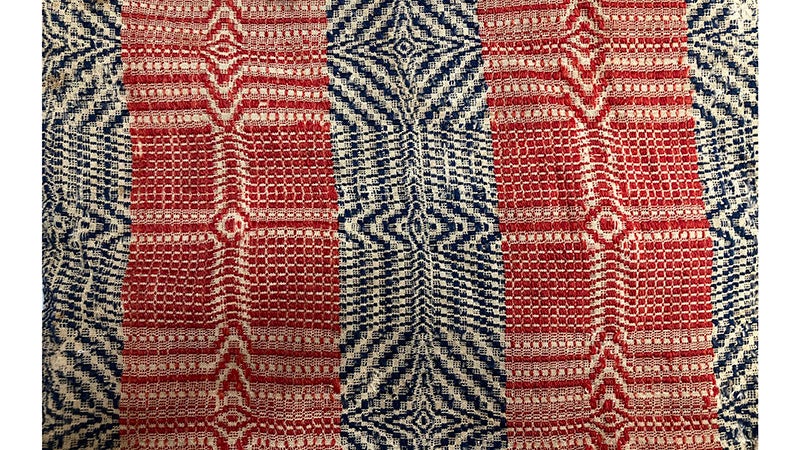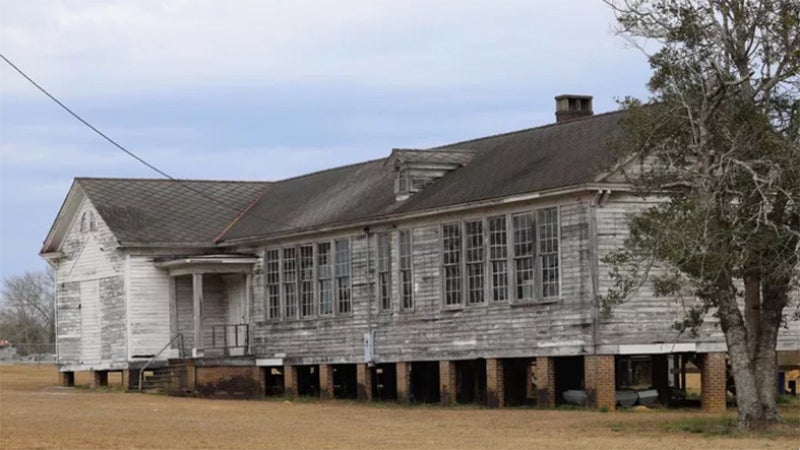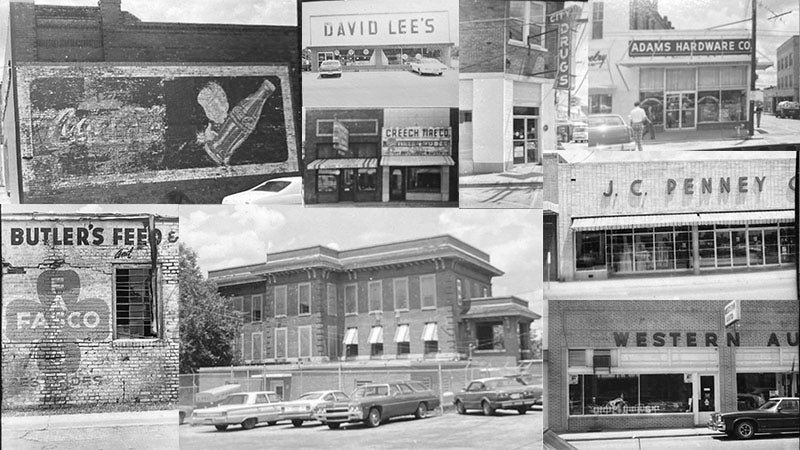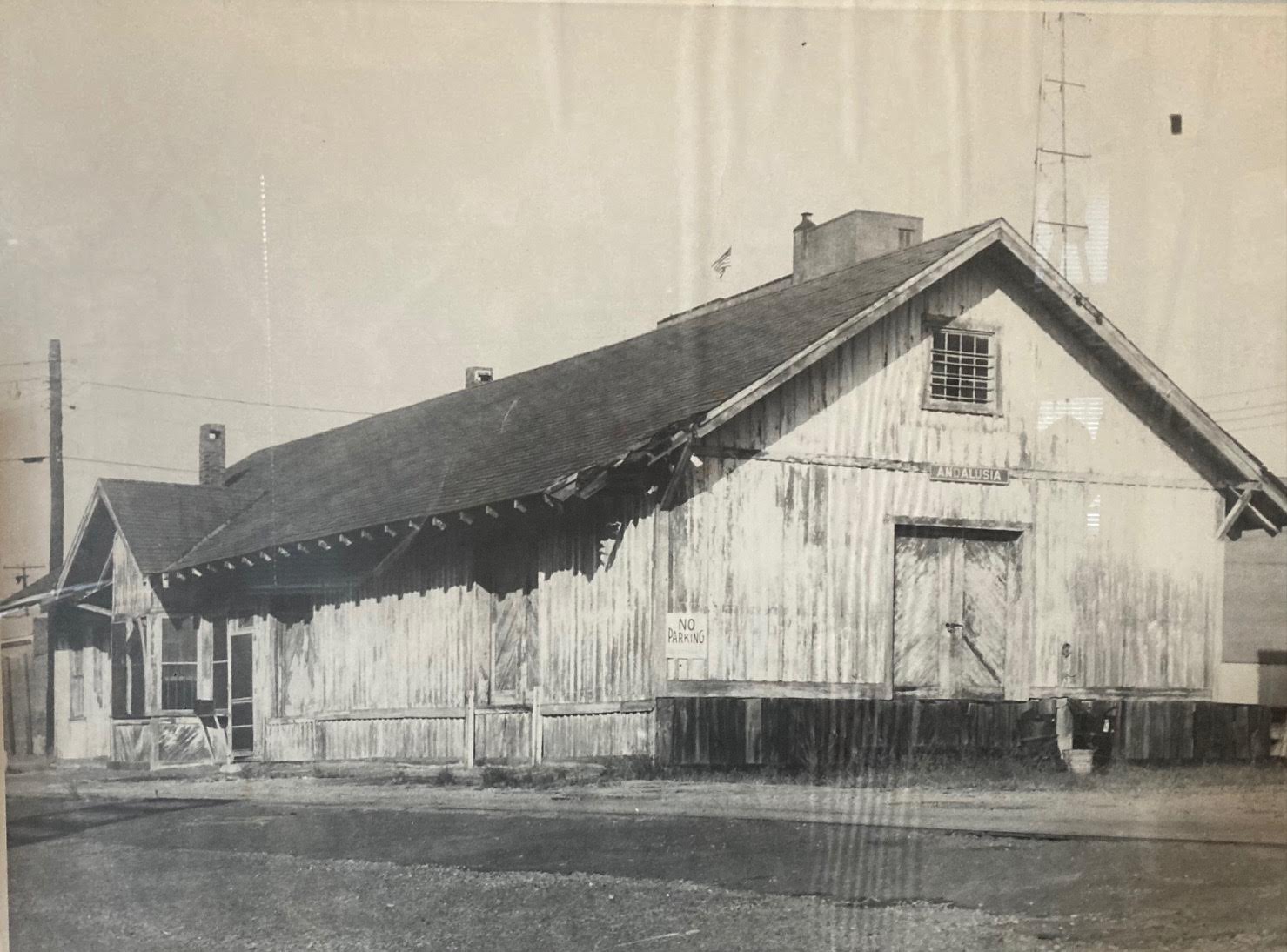Remember when times were hard?
Published 1:31 am Saturday, September 17, 2016
“Brother, can you spare a dime?” This was a popular song of the 1930s which expressed nationwide despair when the stock market crashed on October 24, 1929, Black Thursday, and the closing of banks, factories, and stores closed leaving millions of Americans jobless and penniless.
 Other popular songs of the day were “Hallelujah, I’m a Bum,” “Raisin’ the Rent,” “The Farmer Relief Song,” “I Ain’t Got No Home,” and “Worried Man Blues.”
Other popular songs of the day were “Hallelujah, I’m a Bum,” “Raisin’ the Rent,” “The Farmer Relief Song,” “I Ain’t Got No Home,” and “Worried Man Blues.”
Dr. Joe Merrill, a Houston retired cardiologist and former Andalusian kin to all of the Merrills ‘round here, remembers a lot of stories from the Depression days in Andalusia.
“A certain businessman had some cash. If one wanted change for a ten dollar bill, he’d charge you a dime!”
“Word got around,” he said, “as far north as Decatur, Ala., to avoid Andalusia in your travels. You can’t even cash a check down there!”
“The talk on the street was,” Merrill stated “that the Bank of Dozier was a safe bank. A prominent Andalusia businessman withdrew his money from a bank in a nearby town. He took his 30K in a paper sack and motored to Dozier to deposit it there.”
Morgan Simmons, a former Andalusian, told me once his favorite Depression story – “Mr. J. H. (Jeep) Johnson, who was later Superintendent of Education, stopped by the City Drug Store on the corner of South Three Notch and Pear Street on his way home for lunch and bought a box of chocolate candy as a gift for Mrs. Johnson. That night when he came home, he asked for a piece of that candy, but Mrs. Johnson said she had returned it for a bottle of Milk of Magnesia which they needed more than candy!”
My maternal grandfather Charlie Brunson, town baker, remembered those hard times. He told Andalusia Star News Editor Ed Dannelly that in his 45 years in the hometown bakery business, he had weathered one panic, one depression, two wars, and a recession. He had a humorous way of joking about those times – “A recession is when you tighten your belt; a depression is when you loosen your belt; a panic is when you lose your pants!”
Not too long ago, the Covington Historical Society remembered and reflected on the Great Depression by asking our older members to share some stories of the time. These colorful and poignant stories were compiled to be used by teachers in a history or social studies class setting which will allow the students to play a role as a character from the Depression era and learn about that period of American history. During American Education Week one year, I shared these lines by involving the students:
CHILD: “Mama, I want a new Sunday go-to-meeting dress.”
MOTHER: “I’m planning to sew one for you and your sister as soon as Papa buys a 20-pound sack of flour so I will have some material for your new dresses and underclothes.
MOTHER: “John, why is this money under the mattress?”
FATHER: “Now, Mary, you know we can’t put money in the banks anymore!”
MOTHER: “You kids can have a small piece of ham to put in your biscuit today to take in your lunch pail, but you can only have syrup and biscuit the rest of the week.”
FATHER: “I guess I’ll have to keep on farmin’ even though the hens won’t lay, Ma. I’ve been to town in the wagon and there just ain’t no jobs anywhere. I went to the ice house, the feed store, the drug store, the hotel, the stables, the shoe shop, the depot, and the hardware store. No one is hiring, Ma. Can you take in some sewing and ironing? I’ll try to sell some firewood and kindling.”
FATHER: “It’s 8:00. Time for bed, you bullies and fillies. Waking up time tomorrow is 4:30 when the rooster crows. You’ve got to get up early and help milk the cows and work in the garden before you go to school.”
FATHER: “Ma, Get the soup bowl ready and the kids on the porch. Here comes Aunt Nellie. It’s time for all these rag-a-muffin young-uns to get their monthly soup bowl haircuts!”
FATHER: “Now listen here, young-uns. Don’t put anything on your plate that you don’t plan to eat, you hear me? And sop up that gravy!”
CHILD: “Will you bake me a chocolate cake for my birthday?”
MOTHER: “Not this year, honey. I only have enough money in my apron to buy a nickel’s worth of sugar out of the A & P barrel this week so you’ll have to settle for a cupcake!”
CHILDREN: “What are we gittin’ for Christmas this year, Ma?”
MOTHER: “Oranges, peppermint sticks, Brazil nuts, and maybe if you’re good, an apple in your stocking!”
CHILD 1: “Ma, look, I have a hole in my sock!”
CHILD 2: “And I’ve got a hole in the knee of my overalls!”
MOTHER: “Put them in the mending basket, and I will stitch up the hole and sew a patch in the knee. You know I don’t have enough egg money right now to go downtown Saturday and buy you children some new socks and overalls. We ain’t the Roosevelts!”
CHILDREN: “Ma, what are we havin’ to eat for breakfast?”
MOTHER: “Grits and biscuits.”
CHILDREN: “Well, what are we havin’ for supper?”
MOTHER: “Hoover gravy, grits, and biscuits!”
CHILD: “I’m cold tonight. It’s freezin’ in here. Can I sleep closer to the fireplace?”
MOTHER: “Yes, and I’ll cover you up with a second quilt, Granny’s comforter, and put this covered hot brick at your feet!”
FATHER: “I’m goin’ out to the chicken house to wring a chicken’s neck today. Ma, will you fix chicken and dumplins for Sunday dinner? The preacher’s comin’ and we’ve eaten sweet potatoes, cabbage, and cornbread all week!”
GROWN SON: “Mama, get your money purse out. We’re goin’ to town to buy you an electric refrigerator today.”
MAMA: “Oh, no, we’re not. That ice man brings me a block a week, and that will do just fine for now, Son! We ain’t the Rockefellers!”
FATHER: “Come on out to the garden with me, Son, so we can hoe the weeds and put up a scarecrow to keep the rabbits and birds out. We need to grow a lot of peas, beans, squash, peppers, potatoes, and watermelons this spring and summer so you children will have some good vittles to eat.”
SON: “I’m too tired, Pa.”
FATHER: “Look here, boy – as long as you’re puttin’ your feet under my table, you’re gonna help with all the chores and that includes workin’ in the garden every day. Now go outside and pick your Ma a mess of turnips for supper!”
FATHER: “Ma, It looks like we’re gonna have to move from this here farm. I can’t pay the bank for my loan where I borrowed money to buy feed for the cows and mule and seed for the cornfield and cotton fields. Besides, my back is about broken from plowing without any hired help. We’ll go somewhere and find some work and food. They’ve got soup lines in the city.”
MOTHER: “Bring that dress here, girl, and I’ll let the hem out. When I sew rick-rack on the crease, you’ll be able to wear it for another six months. Besides, that rick-rack will dress it up so you can wear it to the square dance Saturday night!”
FATHER: “Ma, reckon it’s high time to buy these young-uns some shoes and new overalls. It’s gittin’ wintertime, and they’ve gone barefooted to school long enough. We’ll load up and go Saturday on the mule and wagon and head to town. Got to go to the courthouse anyways and tell ‘em I’m gonna be late payin’ my taxes this year. When the cotton crop comes in, Lord willin’, I’ll be able to pay the taxes, Lord willin’ and the creek don’t rise!”
MA: “Save the candle pieces, Flossie. We’ll melt them down and make a big candle. Let me go find those wicks.”
Assuming the presidency in 1933, Franklin D. Roosevelt helped the American people regain faith in themselves.
“The only thing we have to fear is fear itself,” Roosevelt stated at his inaugural and in his popular radio “Fireside Chats.”
His program put into motion in the first 100 days in office, the “New Deal,” worked to bring the nation out of the depths of the Great Depression through sweeping programs to bring recovery to business and agriculture. Even the WPA (Work Projects Administration) here in Andalusia, the government program to employ millions of unemployed Americans, made it possible to build the new Andalusia High School building in 1939. Through the WPA, almost every community in America had new parks, bridges, roads, and schools built.
Songs written by lyrists and song writers of the day during the Great Depression of the 1930’s enjoyed each evening on the family living room radios served as a source of encouragement to everyone throughout this great country. When heard and sung today, these uplifting songs cause us to think back to the echoes of the past and REMEMBER WHEN – “We’re in the Money,” and “Happy Days are Here Again.”
And do visit the Three Notch Museum on Historic Central Street soon to step back in time and see preserved artifacts from the Great Depression. When we understand the past and REMEMBER WHEN, we can appreciate today!





